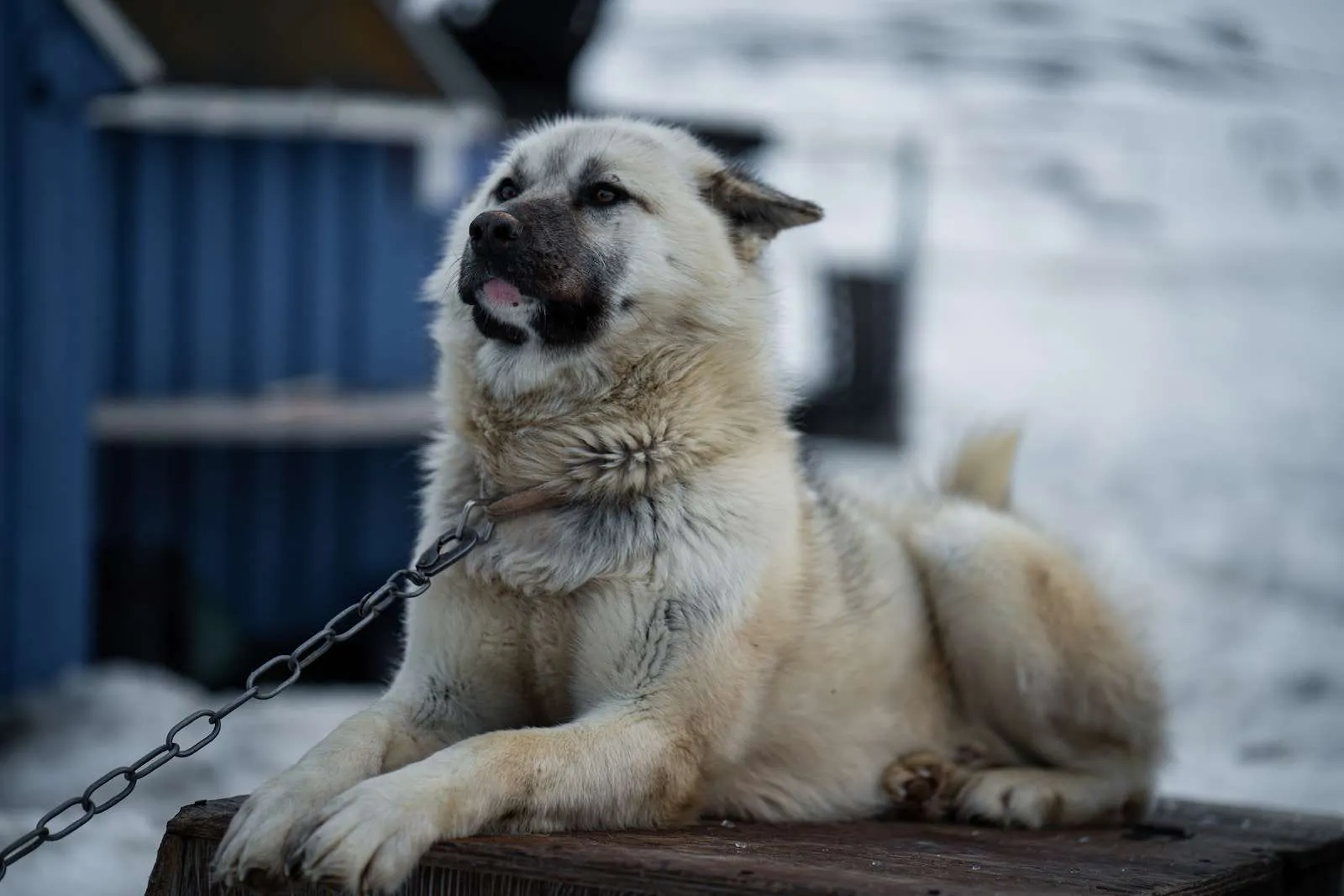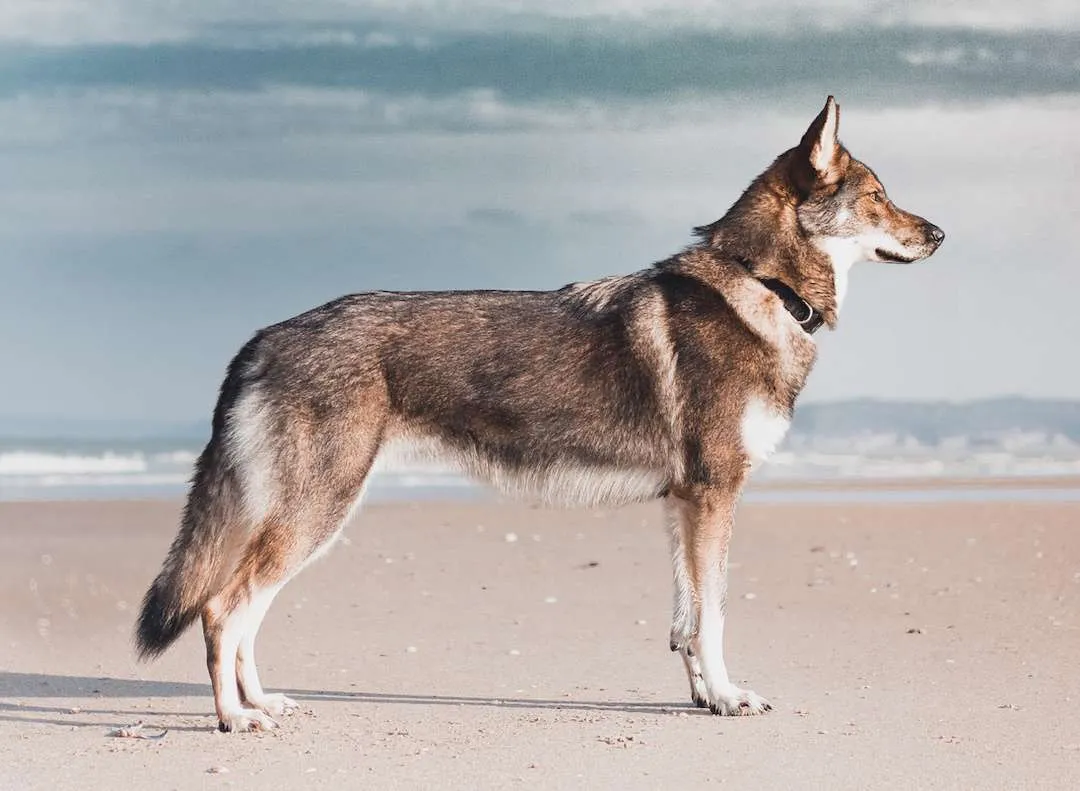Statistics:
- Height: 26 to 28 inches (males), 24 to 26 inches (females)
- Weight: 130 to 150 pounds (males), 100 to 120 pounds (females)
- Life Span: 8 to 10 years
- Diet: Omnivorous (quality commercial dog food designed for large breeds)
Newfoundland Overview:
The Newfoundland is a large and gentle breed known for its sweet temperament and impressive strength. Originating from the Canadian island of Newfoundland, this breed was primarily used as a working dog, assisting fishermen by pulling in nets and rescuing people from the water.
They have a thick double coat that’s water-resistant and a large, robust body. Despite their imposing size, Newfoundlands are known for their gentle and calm demeanor, often referred to as “gentle giants.” They are intelligent, patient, and exceptionally good with children and families.
Newfoundland Highlights:
One of the key highlights of the Newfoundland breed is its natural swimming ability. They have webbed feet and a water-resistant coat, which makes them excellent swimmers. This natural talent has led to them being used in water rescue operations.
Their gentle nature and nurturing instincts also make them excellent therapy and assistance dogs. Many families cherish the Newfoundland for its protective yet loving behavior, making it a wonderful family pet.
Newfoundland Evolution and History:
The Newfoundland’s history can be traced back to the island of Newfoundland, where they were initially used by fishermen. Their strong swimming abilities were employed to pull in nets and even save people from drowning.
The breed’s origin is a bit unclear, but it is believed to have descended from a mix of native dogs and those brought by European fishermen. The breed was refined and standardized in the 18th century, and its popularity spread to Europe and other parts of the world.
Newfoundland Size and Weight:
Newfoundlands are known for their large size, with males typically standing 26 to 28 inches tall and weighing between 130 to 150 pounds. Females are slightly smaller, standing 24 to 26 inches tall and weighing 100 to 120 pounds.
Despite their impressive size, they carry themselves with grace and elegance. Their robust body is well-proportioned, and they have a powerful build that contributes to their strength and agility.
Newfoundland Personality:
The Newfoundland’s personality is marked by kindness, intelligence, and patience. They are often described as gentle giants due to their imposing size paired with their loving and gentle nature.
Their intelligence makes them highly trainable, and their innate desire to please their owners fosters strong bonds with their families. Newfoundlands are known to be exceptionally good with children, often acting as nurturing and protective guardians.
The Adaptability of the Newfoundland:
Newfoundlands are quite adaptable, able to live in various environments as long as their needs are met. While they enjoy outdoor activities and space to move, they are also content living in urban areas, provided they receive adequate exercise.
Their thick coats make them well-suited for colder climates, but they can overheat in hot weather, so proper care and cooling measures must be taken. Socialization from an early age helps them adjust well to different situations and environments.
Newfoundland Temperament:
The Newfoundland’s temperament is one of calmness, kindness, and loyalty. They are naturally inclined to be protective but without aggression.
Their patience and gentle nature make them excellent family pets, and their intelligence and desire to please make them responsive to training. They are often very attuned to their family’s emotions and provide comfort and companionship.
Newfoundland Maintenance and Grooming:
Newfoundlands require regular grooming due to their thick double coat. Regular brushing will prevent matting and help manage shedding.
Other maintenance routines like nail trimming, ear cleaning, and dental care are necessary for their overall health. Despite their large size, they are relatively easy to groom, but their shedding can be quite substantial, especially during seasonal changes.
The Trainability of the Newfoundland:
Newfoundlands are highly trainable due to their intelligence and eagerness to please. They respond well to positive reinforcement techniques, and early socialization helps in developing a well-rounded dog.
Their gentle nature means that harsh training methods are not only unnecessary but counterproductive. Consistent, positive, and patient training methods yield the best results with this breed.
Exercise Needs of the Newfoundland:
Despite their size, Newfoundlands do not require an excessive amount of exercise. Regular walks, playtime, and mental stimulation are usually sufficient.
They do enjoy swimming, and this can be a great way to provide exercise that is easy on their large joints. Proper exercise helps maintain their health and happiness, but their needs are moderate compared to other large breeds.
Newfoundland Health:
Newfoundlands are generally healthy, but like all breeds, they can be prone to certain health conditions:
- Hip Dysplasia: This is common in many large breeds. Regular check-ups and weight management can mitigate the risk.
- Gastric Torsion (Bloat): A life-threatening condition where the stomach twists. Immediate medical attention is needed if signs are noticed.
- Heart Conditions: Newfoundlands may suffer from various heart conditions. Regular veterinary check-ups can help in early detection and management.
- Cystinuria: A genetic condition affecting kidney function. It can be managed with proper diet and medication.
- Obesity: Proper diet and exercise are essential to prevent obesity, a condition that can exacerbate other health problems.
Newfoundland Care:
Caring for a Newfoundland involves meeting their physical, mental, and emotional needs. Regular exercise, a proper diet, and consistent grooming are essential.
They need a secure and loving home environment where they feel part of the family. Understanding their unique personality traits and providing them with the support and structure they need will help them thrive.
Newfoundland Feeding:
Feeding a Newfoundland requires attention to their specific dietary needs based on size, age, activity level, and individual health. High-quality commercial dog food designed for large breeds, or a well-planned homemade diet, can provide the necessary nutrients.
Regular check-ups with a veterinarian will ensure that their dietary needs are being met and can help in preventing obesity.
Newfoundland Coat Color and Grooming:
The Newfoundland’s coat is thick, water-resistant, and usually black, although brown, gray, and Landseer (white with black markings) are also common. Regular brushing is essential to manage shedding and prevent matting.
While their grooming needs are moderate, their size may make the task more laborious. Regular grooming not only helps in maintaining the coat’s health but also provides an opportunity to check for signs of skin problems or other health issues.
Newfoundland and Children:
Newfoundlands are famously good with children. Their gentle and patient nature makes them excellent family companions. They often act as nurturing guardians, providing comfort and security to children in the household.
Their size may be intimidating, but with proper supervision and training, they are known to be very gentle and caring with children of all ages.
Newfoundland and Other Pets:
Newfoundlands generally get along well with other pets. Their gentle temperament often allows them to coexist peacefully with other dogs and even cats.
Early socialization and proper introductions can help foster positive relationships with other pets in the household. Their innate tolerance and calm demeanor make them suitable for multi-pet homes.
Similar Dogs:
- Saint Bernard: Similar in size and temperament, Saint Bernards and Newfoundlands both have a history of rescue work and are known for their gentle and nurturing nature.
- Tibetan Mastiff: Another large and powerful breed, the Tibetan Mastiff shares physical characteristics and protective instincts with the Newfoundland, although the Tibetan Mastiff tends to be more independent.
- Leonberger: The Leonberger is a gentle giant like the Newfoundland, sharing a similar size, appearance, and friendly disposition.
The Newfoundland’s striking appearance and loving nature make it a beloved breed worldwide. Their unique blend of strength, intelligence, and gentleness make them extraordinary working dogs, therapy dogs, and family pets. Understanding and appreciating their distinctive qualities will ensure a fulfilling relationship with these remarkable dogs.

